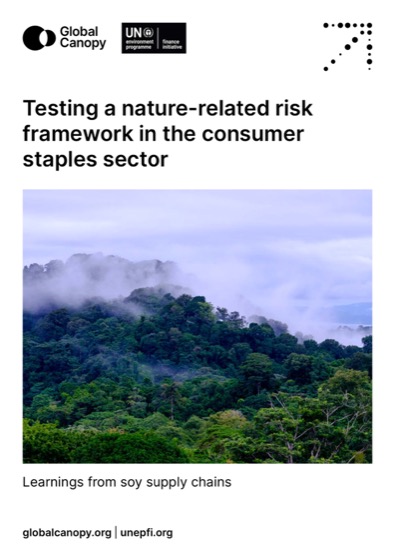A new report from Global Canopy and UNEP FI identifies key challenges that corporates and financial institutions face in assessing, managing and reporting on their nature-related risks. The report’s recommendations are intended to inform the forthcoming global framework for nature-related risk management and disclosures currently being developed by the Taskforce on Nature-related Financial Disclosures (TNFD).
Global Canopy and the United Nations Environment Programme Finance Initiative (UNEP FI) undertook an initial pilot study to support the development of the first beta version of the TNFD’s global framework for nature-related risk management and disclosures, which will be released in March 2022. The project aimed to identify what a framework for nature-related risks, specifically the TNFD framework, would need to consider to be practically implementable by corporates and financial institutions.
To do this, Global Canopy and UNEP FI developed a high-level exploratory framework which presented concepts laid out in the TNFD’s Proposed Technical Scope. Alongside examples, data and metrics, the high-level framework was tested with a small group of organisations who operate within, or provide finance to, soy supply chains. These included Rabobank, Santander, Tesco, Vitasoy, Danone and McDonald’s. WWF also provided additional technical input.
The project looked at soy supply chains specifically because this sub-sector is associated with nature-related financial risks and has relatively good availability of relevant data. Future pilot tests of the beta versions of the TNFD framework itself will look at other sectors and sub-sectors. Global Canopy is already preparing to pilot test the first beta version of the framework in the palm oil sub-sector as soon as the framework is released next month.



